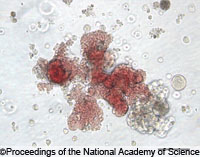Stem cell compromise allows approval of FP7 by Council
The remaining obstacles in the way of the Seventh Framework Programme (FP7) were swept aside on 24 July when ministers found agreement on funding for stem cell research and nuclear research. The decision clears the way for a second Parliament reading of the FP7 proposals in the autumn, and the timely launch of the programme on 1 January 2007. As expected, it was stem cell research that kept ministers in the Competitiveness Council until well past the foreseen finishing time. In spite of the fact that stem cell research makes up just a fraction of research receiving EU funding (0.4 per cent of the funding for health research in FP6, according to EU Science and Research Commissioner Janez Potocnik), using stem cells for science, and in particular embryonic stem cells, is a sensitive issue in some countries. Agreement was possible thanks to a compromise text drafted by Mr Potocnik. The twp sentences make it clear that activities leading to the destruction of human embryos will not receive funding, while leaving open the possibility of restricted research involving embryonic stem cells. The text reads: 'The European Commission will continue with the current practice and will not submit to the Regulatory Committee proposals for projects which include research activities intended to destroy human embryos, including for the procurement of stem cells. The exclusion of funding of this step of research will not prevent Community funding of subsequent steps involving human embryonic stem cells.' As in FP6, certain areas will not receive any EU funding: human cloning for reproductive purposes, research intended to modify the genetic heritage of human beings which could make such changes heritable, and research intended to create human embryos solely for the purpose of research or the purpose of stem cell procurement. Each project proposal will also be subject to a strict ethical review, and the rules of each country involved in a project will always be respected. Sweden's Minister for Education and Culture, Leif Pagrotsky, summed up why the two compromise sentences represented an arrangement that should be acceptable to all: 'The two sentences go together. They are two parts of a bigger whole. It doesn't categorically state that it [embryonic stem cell research] will be impossible. This would be to go too far just to appease a minority. It is enough to say it should be restrictive.' Key to a qualified majority within the Council were the positions of Italy and Germany. Five other countries were also against the FP7 proposal for ethical reasons, but without the larger Italy and Germany, they could not prevent the programme from being voted through. For Germany's Research Minister Annette Schavan, it was important that no financial incentive was to be on offer for the destruction of embryos for research. 'Germany considers FP7 as important [...]. The protection of human dignity, the right to life, need to be properly entrenched in FP7 as well. There should be no financial incentive for the killing of embryos. We wanted this in the text. In the interests of ensuring protection of human life [...] we can accept the Commission declaration as formulated by Commissioner Potocnik,' said Ms Schavan. When Italy's minister, Fabio Mussi, followed this statement with the announcement that it would also support the text, there was a round of applause from other ministers. Chairing the meeting, Finland's Minister for Trade and Industry, Mauri Pekkarinen, said that he thanked Germany and Italy from the bottom of his heart for their very constructive approach. Five countries voted against the agreement, and wanted their objections noted. Lithuania, Austria, Malta, Slovakia and Poland were unable to sign up to the FP7 proposal for ethical reasons. Nevertheless, the qualified majority, which enabled a political agreement, were hailed by Mr Potocnik and Mr Pekkarinen, who referred to it as a 'historic agreement'. The Seventh Euratom (European Atomic Energy Community) Framework Programme had appeared to be a sticking point when Austria vetoed the proposal in June. But in limiting the EU's Joint Research Centre's role in the Generation IV International Forum (working on a fourth generation nuclear reactor) to safety and safeguarding aspects of innovative fuel cells, a compromise acceptable to Austria was found. The proposal was therefore adopted with unanimity. The budget for FP7 will be €55.6 billion. This is a 'considerable improvement on FP6', said Mr Pekkarinen. The programme will be divided into four specific programmes: - Cooperation - collaborative research; - Ideas - includes the establishment of a European Research Council; - People - for human resources; - Capacities - research capacity of small and medium sized enterprises (SMEs). 'Cooperation' will receive the lion's share of the budget at €32.365 billion. Under this heading, research in 10 thematic areas will receive funding: health; food, agriculture and biotechnology; information and communication technologies (ICT); nanosciences, nanotechnologies, materials and new production technologies; energy; environment; transport; socio-economic sciences and the humanities; space; and security. 'I am particularly pleased with the fact that the line which the Finnish Presidency has adopted in promoting the EU's innovation policy is bearing fruit,' said Council Chair Mr Pekkarinen. 'The FP7 for research forms a part of the longed-for concrete measures in realising the Lisbon agenda. It is the chief instrument for funding European excellence and innovation and one of the key elements of promoting European competitiveness during Finland's Presidency.' The Competitiveness Council was an 'extraordinary meeting', called specifically to discuss and adopt FP7. Mr Pekkarinen admitted that 'we took a little bit of a risk when we decided to have an extraordinary meeting. But the risk paid off.'
Countries
Italy



